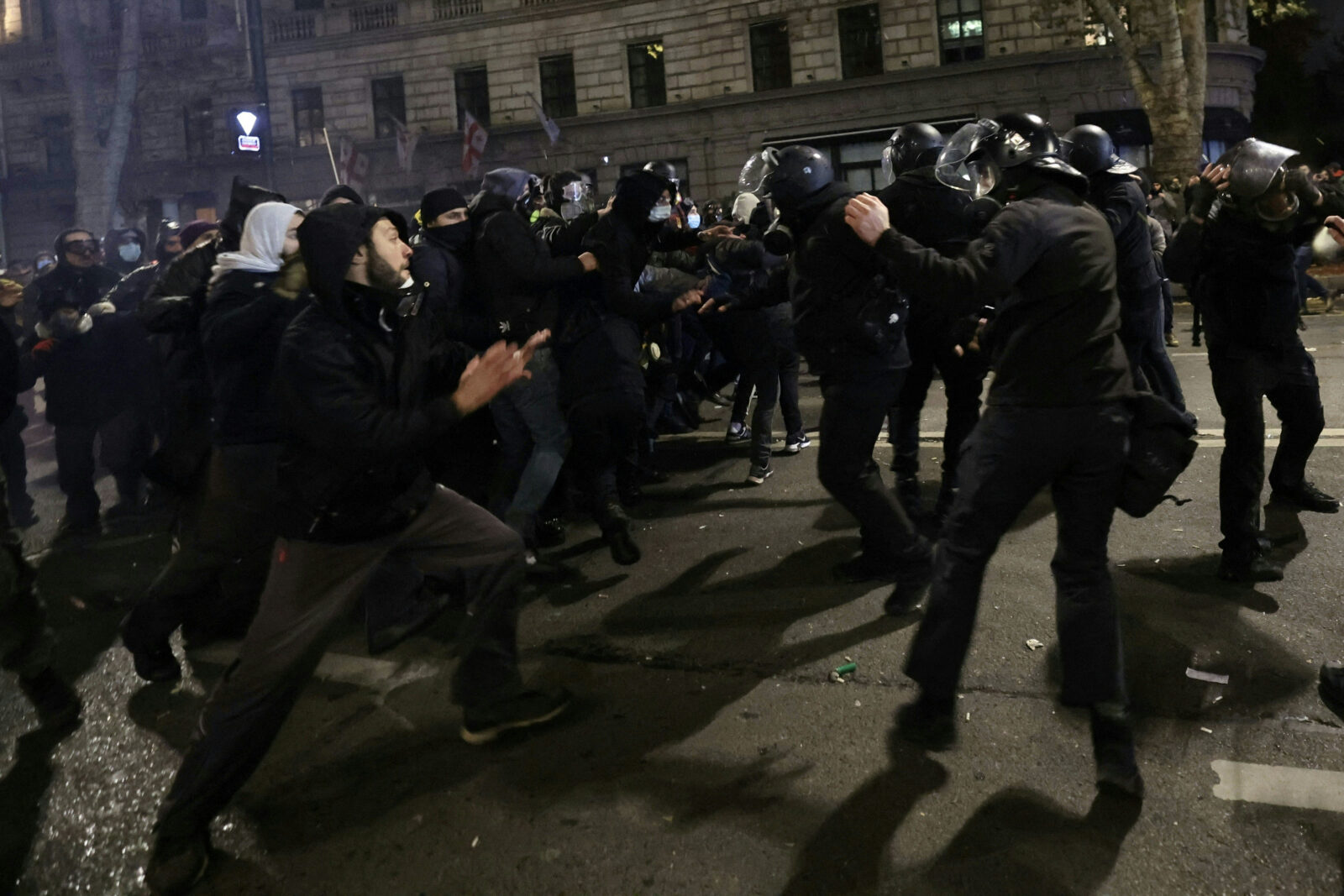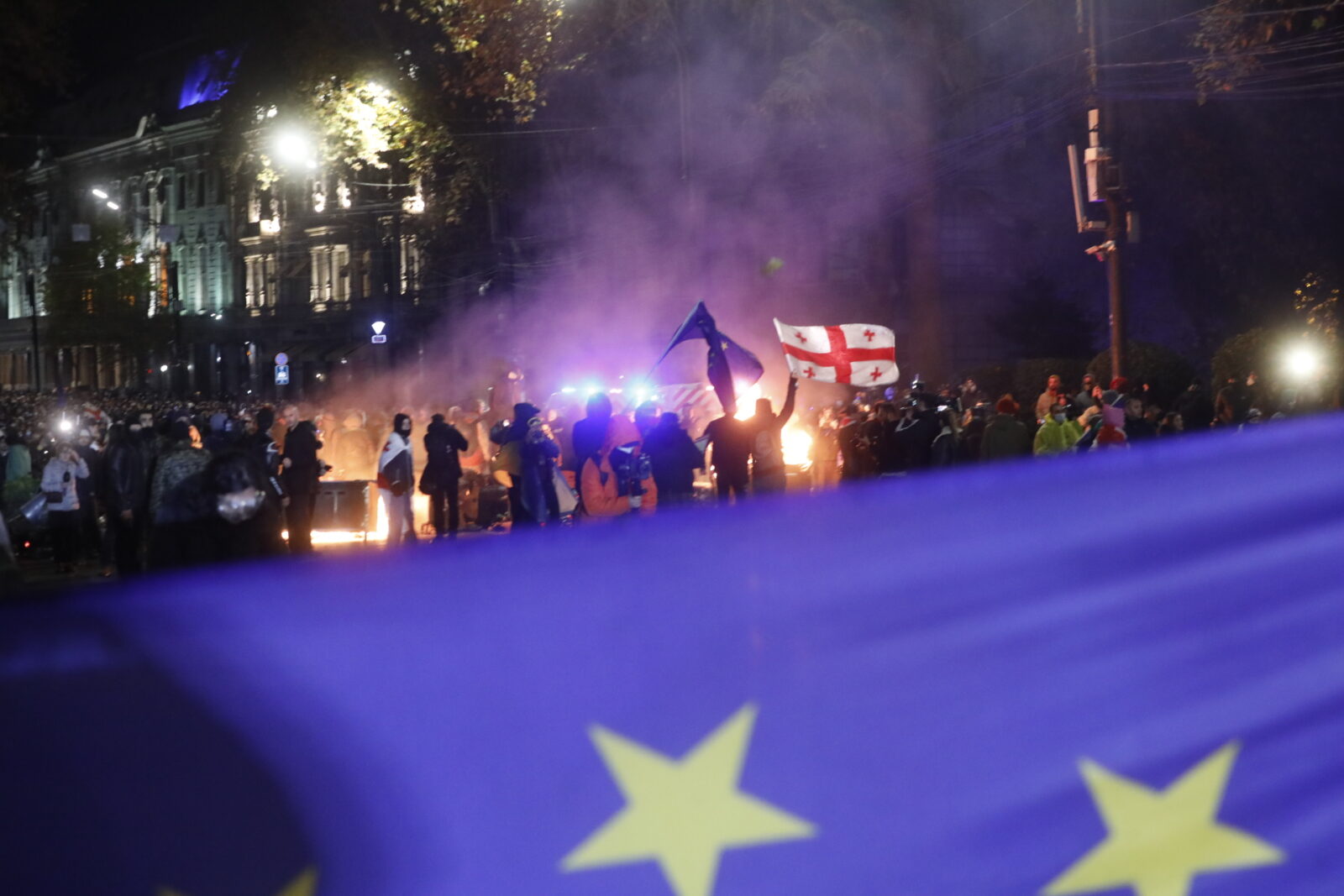Georgian President urges Europe to 'wake up!' amid EU accession delay protests
Georgian President urges Europe to 'wake up!' amid EU accession delay protests
November 30, 2024 05:15 PM GMT+03:00
Protests erupted in Tbilisi after the Georgian government decided to delay EU accession talks until 2028.
President Salome Zourabichvili criticized the police response to the demonstrations, calling it an attack on European ideals, while Prime Minister Irakli Kobakhidze defended the government's position and the actions of the security forces.
Key points:
- Zourabichvili's condemnation: The president accused Russian-backed forces of undermining Georgia’s European aspirations. In her statement, she said, “What Russian proxies are doing in Tbilisi’s streets is an attack on Europe and European ideals. Wake up, Europe!”
Protesters face off with police during a demonstration against the government's decision to delay EU membership talks, near the Parliament building in downtown Tbilisi early on Nov. 30, 2024. (AFP Photo)
- Violence in Tbilisi: During the protests, demonstrators threw Molotov cocktails, fireworks, and other objects at the police. The police responded with tear gas and water cannons. According to reports, over 107 people were arrested, and more than 50 police officers were injured, 20 of whom required surgery.
- Government response: Kobakhidze defended the decision to postpone EU talks, stating that it does not mean Georgia is halting its integration with the EU. He called the protests violent and said police used restraint despite the escalating situation.
Georgian police deploy water cannons and tear gas to disperse protesters in Tbilisi, as tensions rise over the government's decision to delay EU accession talks until 2028, Nov. 29, 2024. (AA Photo)
Context
- The protests began after the government announced on Nov. 28 that EU membership talks would be delayed until 2028. Kobakhidze criticized European politicians for interfering in Georgia’s internal affairs and for using EU financial aid as leverage.
- The European Parliament has raised concerns about democratic issues in Georgia, citing allegations of irregularities in the October 2023 parliamentary elections. They have called for new elections under international supervision.
Georgia’s EU accession process
- Georgia applied for EU membership in March 2022 and was granted candidate status in December 2023. However, tensions over legislation, including the controversial "foreign influence transparency" law, have led to a halt in EU accession talks in July 2024.
- President Salome Zourabichvili has consistently supported Georgia’s European integration, criticizing both internal and external forces that she believes hinder the country’s progress toward EU membership. In her recent statements, Zourabichvili called out the actions of Russian-backed forces as a direct challenge to Georgia’s European aspirations, emphasizing that the nation’s future lies with Europe.
Looking ahead
As protests spread to other cities beyond Tbilisi, the government faces increasing domestic and international pressure. The suspension of EU accession talks has sparked debates about Georgia’s political future and its relationship with Western institutions.
November 30, 2024 05:15 PM GMT+03:00


